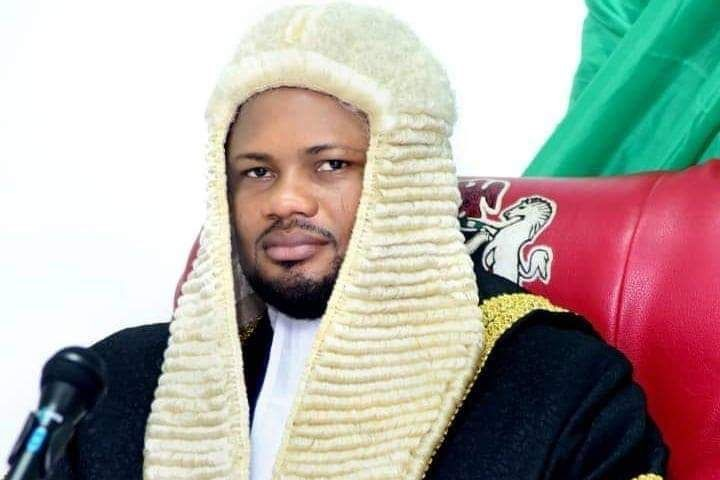Eben Enasco Reporting.
Towards the end of March 2023, the Edo State House of Assembly passed the Executive Bill for a law to establish a single haulage fee on agricultural farm produce.
The presentation of the bill was done by the majority leader of the House, Rt. Hon. Henry Okhuarobo represents the Ikpoba Okha constituency.
Okhuarobo during his presentation of the executive bill, argued that the Bill critically supports the uniformity in the charges on farm produce.
Eight out of the Nine lawmakers in attendance unanimously pledged their backing for the Bill to be passed into law despite the objection by Hon. Emmanuel Agbaje, representing Akoko Edo Constituency Two, in the 7th Assembly, who drew the attention of the House to carefully observe a section of the Bill that he perceived was designed to strangulate the people through prices of commodity hikes in Edo State.
The eight lawmakers as a majority defended their stance when they claimed that the bill will provide a legal framework for the smooth administration of taxes, shore up revenue for the State as well as provide job employment for the unemployed.
They further added that it will create a single fee for goods and agricultural produce, noting that it would also plug some of the identified leakages in the collection of fees.
Emmanuel Agbaje said outside the drawback spotted in tax imposition of the bill on the commonly consumed farm produce, he expects the Executive bill to only capture Taxes on degraded goods, such as cocoa and other related products.
Agbaje’s call to delete the tax bill that he anticipated will impose taxes on poor farmers amidst economic hardship when passed on Commonly consumed goods, or Non-Degrade, such as tomatoes, vegetables, and okra in the section of the bill, did not receive support amongst colleagues as his lone voice was left in the wilderness and his arguments thrown to the dustbin.
Outside Agbaje’s variations and his deeds to point out loopholes in the bill, there are infractions of an aspect of the bill that may stop the further consideration of signing it into law.
For the record, the lawmaker should have consulted deeper into the Tax and levy laws and whether it granted any permission for such collection before considering passing the bill.
On the whole, the state governor is in the last stage to assent to the bill before promulgating it as a law.
Before assenting to the bill, Governor Godwin Obaseki should know there is a need to seek a section of the law under the collection of taxes and levy rates as enshrined in the Constitution.
The Former Minister of Agriculture Audu Ogbeh had 2017 raised concerns about the illegal checkpoints and revenue collectors along transportation routes for food items, saying it had an impact on the current increase in the prices of food.
The Federal Government has constituted an Inter-Agency Committee to enforce a ban on the collection of levies and taxes on agricultural produce on highways.
A statement issued by Tony Ohaeri, the Director of Information, Federal Ministry of Agriculture and Rural Development in Abuja on Monday, said the committee was inaugurated by the Minister, Chief Audu Ogbeh.
The committee was constituted following recommendations of the Presidential Taskforce on increasing food prices set up in February by the outgoing Vice President Yemi Osinbajo.
He urged the committee to facilitate the government’s directives on the multiple levies and unauthorized checkpoints during the transportation of agricultural produce from one state to another.
In 1981, decree No 21 of the Military Government of Nigeria, Section 2 stated that “no person including a Tax authority shall Mount Roadblock in any part of the Country for Tax or Levy collecting
The decree of section 2, however, recommended a 3-year or fine of N50,000., or both for any authority, who contravenes.
Similarly, in a judgment dated Tuesday, October 24, 2014, with suit no.HIGU/2/2014, between an oil palm Company, claimant, and Ovia South West Local Government Council, defendant, before Justice J.A. Osadiaye at the High Court sitting in Iguobazuwa, the Court held that the defendant has no power under the Constitution of the Federal Republic of Nigeria 1999, or any law to Mount Roadblocks within its Local Government area to collect any tax, levies and/or rate for any reason whatsoever from the claimant and/or its suppliers.
The originating summons dated and filed by the claimant against the defendant, on March 25, 2024, asks the Court to resolve whether or not the defendant has the power under the Constitution to collect the tax or any levy.
This is a testimony that is pointing to our argument.
The bill harmonizing a single haulage fee should have captured degraded farm produce not allowing it to extend to none degraded goods.
Agribusiness is tax-free. The payments of minimum tax by companies that make small or no profi
